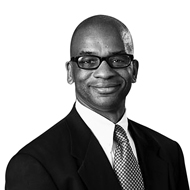A Financial Adviser Asks: Should I Always Be Closing?
Should financial planners Always Be Closing?
This question came up recently in a conversation I had with a brokerage executive looking to start a registered investment advisory firm. He had spent his three-decade career working at a major brokerage and had achieved a significant amount of success. As told me about the superior sales training he had received at his old firm, he commented that when working with clients and prospective clients, you needed not only to have product expertise but also to be on the lookout for opportunities to “close.” In other words, as they said in Glengarry Glen Ross, “Always be closing.”
As those words rolled off his tongue, I cringed. Despite being in the financial services industry for over 23 years, I was not raised at a brokerage like his. I thought, "I became a financial planner because I wanted to help people make good choices about their money." In my mind, being a financial planner was not about transactions or being a stockbroker; it was about relationships.
I disagreed with him, and I was gearing up for battle in our conversation. Maybe you've heard that when it comes to professional sports, 90% to 95% of it is mental.
Well, I hit a mental wall.
As his words lingered in my mind, I started thinking about the recent prospective clients whom I had asked to come in for a complimentary meeting. One by one, they came in as prospects and left politely as uninterested parties. Maybe, given my lack of success in having them choose to hire me, I was doing something wrong.
In these free meetings--which I schedule to last for an hour but usually go an hour and a half--I go over potential clients' current financial situation. I also try to help them visualize and crystallize their financial goals. Ninety-nine percent of the time, they've never done that.
Was I wrong to focus on trying to provide value to them upfront, even if it meant us not working together? Should I have focused on the “close” instead? Was he right and I wrong? As these questions crowded my brain, as I geared up for a spirited debate, all I could barely whisper was, "Perhaps you’re right." Point--brokerage executive; goose egg for me.
Here is what I now realize I didn't say. I should have told the executive about my clients who, in fact, had expressed their comfort in knowing that they could come to me for help and not feel pressured to purchase a product. I had also failed to tell him that by us not focusing on “closing” when serving clients, I could work in better alignment with their goals and in choosing the right planning tools. In other words, I could act in their best interest. These were key points! What happened? I believe I shanked my shot because on some level he did have a point--sort of.
In fact, I think I should change how I work with prospects. I'll still conduct these complimentary meetings, but I'll run them in a way that doesn't take an hour and a half. I'll try to cut it down to an hour.
As planners, despite our noble reasons for being in the profession, we all have a sales process--either organized or not. Bottom line: We are trying to convince someone that they might benefit later from the advice we provide, and which they have to pay for upfront. It is only later that they begin to see the actual value of the advice and appreciate it.
Until that point, we have to re-convince them to stay the course we set, which means, in some respect, we are “closing” again. I like to think we’re actually “comforting” them, not closing. Always Be Comforting.
----------------------------------------
Frank Paré is a certified financial planner in private practice in Oakland, California. He and his firm, PF Wealth Management Group, specialize in serving professional women in transition. Frank is currently on the board of the Financial Planning Association and was a recipient of the FPA’s 2011 Heart of Financial Planning award.
